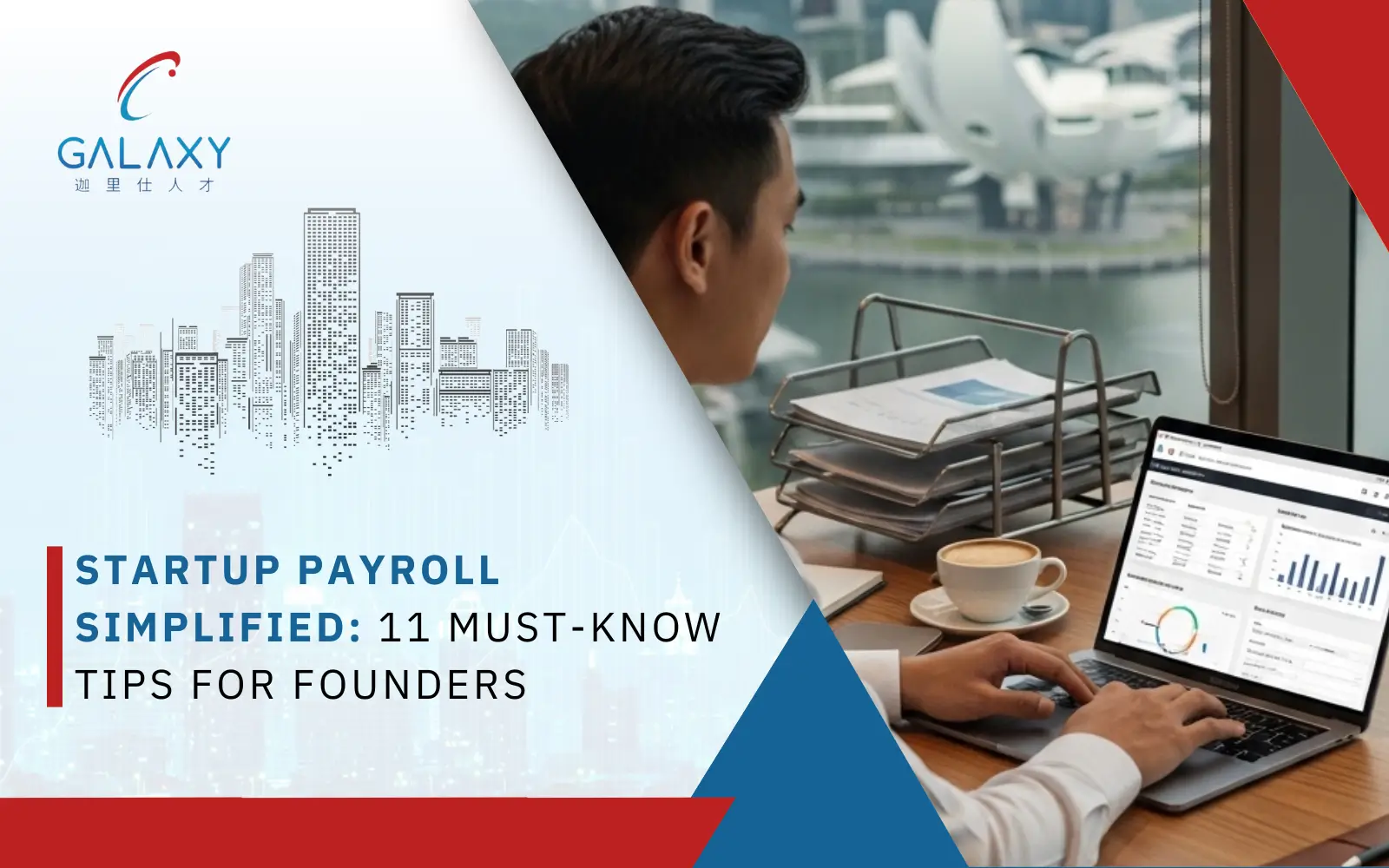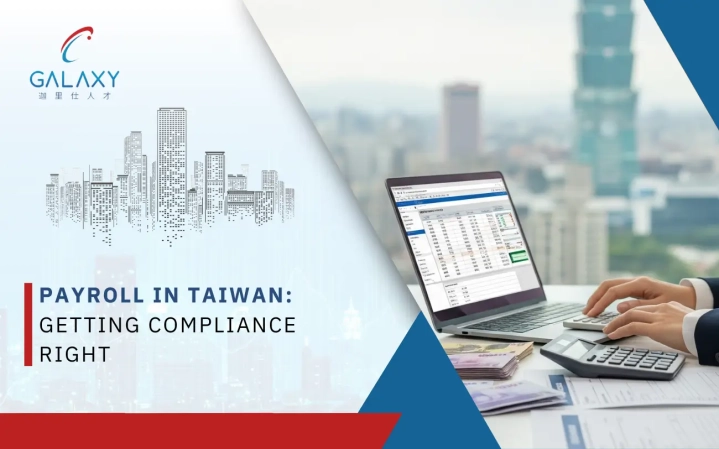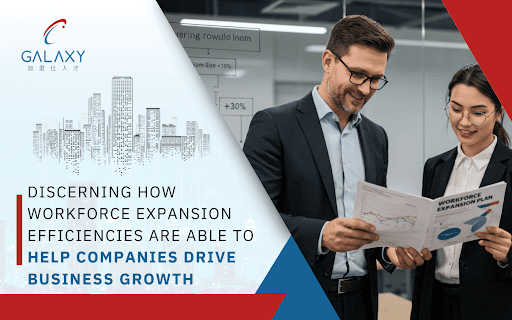Startup Payroll Simplified: 11 Must-Know Tips for Founders

In today’s global business landscape, payroll has evolved into a strategic lever for credibility and growth. For start-ups expanding across Asia-Pacific (APAC), the challenge extends far beyond salary disbursement. It requires navigating diverse labour regulations, cross-border taxation, and benefits administration with precision. A single error can compromise compliance, delay operations, and erode trust among employees and investors.
Establishing a structured, future-ready payroll system is therefore not merely an operational necessity but a defining marker of sound governance and sustainable expansion.
This guide provides a region-specific framework for establishing compliant and scalable payroll dynamics. It highlights current trends in workforce management and the strategic role of Employer of Record (EOR) solutions, offering practical guidance for companies expanding into key APAC jurisdictions.
Table Of Content
- Why Payroll Needs a Founder’s Attention from Day One?
- 3 Things Founders Must Know About Global Payroll in APAC
- EOR Payroll as a Fast-Track Strategy for Market Entry and Workforce Expansion
- 11 Must-Know Tips for Founders Managing APAC Payroll
- Streamlined Global Growth with Employer of Record Support
- Choosing the Right Global Payroll Provider: A Founder’s Checklist
- Conclusion
- Frequently Asked Questions
Why Payroll Needs a Founder’s Attention from Day One?
A compliant and well-structured payroll system is fundamental to organisational credibility, yet it is frequently overlooked during the early stages of planning. Payroll extends beyond the distribution of salaries; it serves as the foundation for legal compliance, employee confidence, and sustainable growth.
Risks of Poor Payroll Management
- Employee dissatisfaction with delayed or inaccurate payments
- Regulatory penalties arising from non-compliance
- Investor concerns during audits and due diligence processes
Strategic Benefits of Early Payroll Integration
| Advantage | Outcome |
|---|---|
| Seamless onboarding | Compliant hiring from day one |
| Clean financial reporting | Credibility with investors and regulators |
| Scalable operations | Quick entry into new markets with built-in compliance |
| Lower legal exposure | Reduced risk of violations and disputes |
In fast-growing markets, particularly across the APAC region, founders must treat payroll management as a strategic priority. Done right, it ensures business continuity, investor confidence, and operational readiness from the start.
Read Our Blog: Should a Small Business Outsource its Payroll Function?
3 Things Founders Must Know About Global Payroll Management in APAC
As start-ups scale into the Asia-Pacific (APAC) region, payroll quickly shifts from a back-office process to a strategic priority. Each market presents unique requirements that, if mishandled, can affect compliance, cash flow, and credibility. Founders should focus on three critical areas:
1. Regulations Vary Widely
Unlike operating within a single domestic framework, payroll in APAC requires navigating multiple tax structures, labour laws, and statutory obligations.
For example, Singapore mandates contributions to the Central Provident Fund (CPF), whereas Hong Kong does not have a mandatory social security system but does enforce the Mandatory Provident Fund (MPF). Vietnam, on the other hand, has strict rules around minimum wage and compulsory insurance. Failing to understand and apply these local requirements can quickly result in fines or regulatory scrutiny.
2. Compliance Drives Credibility
Payroll is directly tied to trust—both from employees and from investors. A missed salary payment, an incorrect tax filing, or non-compliance with local regulations can cause significant reputational damage.
For instance, late or inaccurate contributions in Singapore can lead to penalties, while in markets like the Philippines, the Department of Labour and Employment (DOLE) actively audits companies for payroll violations. Founders who prioritise compliant payroll systems signal professionalism, stability, and readiness for growth.
3. Strategy Matters
Payroll management reactively across different jurisdictions is neither scalable nor sustainable. A unified payroll strategy—supported by reliable systems or Employer of Record (EOR) solutions—ensures consistency, accuracy, and transparency across borders. This not only reduces the risk of human error but also helps founders plan for growth, manage costs effectively, and create a seamless employee experience across diverse markets.
How Does Payroll Complexity Vary Across APAC?
| Country | Statutory Components | Payroll Challenges |
|---|---|---|
| Singapore | CPF, Income Tax, SDL | CPF accuracy, leave compliance |
| Hong Kong | MPF, Salaries Tax | MPF limits, annual filings |
| China | Social Insurance, Housing Fund, IIT | City-level rules, complex thresholds |
| Taiwan | Labour & Health Insurance, Pension | Dual contributions, monthly reporting |
| Macau | Social Security, Professional Tax | Foreign worker permits, tax exemptions |
| Vietnam | Social Insurance, Trade Union Fees | Regional wages, contract classifications |
| Thailand | Social Security, Personal Income Tax | Tiered tax, expat compliance |
| Philippines | SSS, PhilHealth, PAG-IBIG, 13th-Month Pay | Regional codes, benefit remittances |
| Japan | Health, Pension, Unemployment Insurance | Multiple deductions, complex schedules |
The Cost of Non-Compliance
Errors in payroll filings or compensation can lead to regulatory penalties, business disruption, and reputational harm. In emerging markets, such missteps also affect employee retention and morale.
Strategic Consideration
Payroll is not just an operational function—it is a critical compliance framework. For companies expanding across APAC, access to local expertise and a market-specific payroll structure is essential to managing risk and supporting long-term growth.
EOR as a Fast-Track Strategy for Market Entry and Workforce Expansion
Operational efficiency, speed, and compliance are essential when entering new markets. The Employer of Record (EOR) model enables businesses to build a local workforce without the time and complexity of setting up a legal entity. As the legal employer, an EOR manages employment contracts, payroll, statutory contributions, social security, and tax compliance, allowing companies to engage talent seamlessly while retaining complete operational control.
When to Consider the EOR Model
- Entry into a new market without a registered business entity
- Employment in countries with complicated or unclear labour laws
- Quick expansion into target markets
- International short-term or project-based assignments
Strategic Benefits of the EOR Payroll Model
| Benefit | Description |
|---|---|
| Accelerated Hiring | Talent can be onboarded within 1–2 weeks, enabling faster market activation. |
| Reduced Overhead | Eliminates the need to establish a legal entity, lowering entry barriers. |
| Risk Mitigation | Ensures compliance with local tax, labour, and statutory regulations. |
| Resource Efficiency | Internal teams remain focused on core operations rather than administrative tasks. |
The EOR payroll model has become a practical solution for globally minded organisations seeking flexibility, speed, and compliance as they expand into new markets.
11 Must-Know Payroll Practices for Managing Operations
Managing payroll across Asia-Pacific requires strict compliance with local regulations, precise administration, and sensitivity to regional labour standards. The following practices are critical to maintaining legal integrity and operational efficiency.
1. Understand Local Statutory Requirements
Each APAC jurisdiction enforces specific payroll obligations, including deductions, employer contributions, and statutory filings.
- Singapore: Central Provident Fund (CPF), Skills Development Levy (SDL), IRAS tax filings
- Japan: Health insurance, pension, and unemployment contributions
- Philippines: SSS, PhilHealth, PAG-IBIG Fund, 13th-month pay obligations
In-depth local knowledge is essential to ensure accuracy and avoid penalties.
2. Align Payroll with Local Holidays and Pay Cycles
Payroll schedules must reflect public holidays and banking practices.
- Vietnam: Tet (Lunar New Year) often causes prolonged closures
- Japan: Golden Week impacts payroll operations and remittances
Alignment avoids late payments and contractual breaches.
3. Implement FX-Optimised, Multi-Currency Payroll Systems
Cross-border operations often require salary disbursements in multiple currencies. Use platforms that provide:
Competitive exchange rates
Reduced transaction costs
Timely and traceable transfers
Such systems ensure payroll consistency and financial control.
4. Automate Tax Calculations and Statutory Filings
Automation reduces the risk of manual errors and non-compliance.
- Apply jurisdiction-specific tax rates and thresholds
- File returns to local authorities on time
- Generate compliant records for audit purposes
Automation supports both accuracy and regulatory adherence.
5. Integrate Time and Leave Management
Payroll accuracy relies on real-time attendance and leave tracking.
- Sync systems with national calendars and rest day regulations
- Record overtime and time-off requests
- Calculate entitlements like holiday pay and shift differentials
This integration improves transparency and payroll integrity.
6. Stay Updated on Regulatory Changes
Labour laws in jurisdictions such as China and Indonesia are subject to frequent changes. To remain compliant:
- Monitor updates from labour ministries and official gazettes
- Engage local advisors to assess policy impact
- Update payroll systems and practices regularly
Proactive compliance reduces risk exposure.
7. Offer Statutory and Competitive Benefits
Beyond legal minimums, enhanced benefits support retention and employer brand value.
Group health insurance
Wellness or mobility allowances
Learning and development reimbursements
Market-aligned packages improve workforce satisfaction and reduce attrition.
8. Enforce Data Privacy and Security
Payroll data must comply with local data protection laws and regulations.
- Singapore: Personal Data Protection Act (PDPA)
- Philippines: Data Privacy Act of 2012
- China: Personal Information Protection Law (PIPL)
Use encrypted systems, restrict access, and maintain internal audit trails.
9. Handle Exits and Final Settlements Carefully
Offboarding must comply with jurisdiction-specific rules.
- Honour notice periods and severance formulas
- Settle unused leave and outstanding dues
- Deliver accurate final payslips and required documents promptly
Proper handling mitigates legal and reputational risks.
10. Maintain Payslip Accuracy and Transparency
Payslips should include all mandatory and company-specific components:
- Gross pay and fixed allowances
- Tax and statutory deductions
- Employer contributions
- Net payable salary and benefit accruals
Clear payslips foster compliance and trust.
11. Localise Employment Contracts
Standardised templates are insufficient across jurisdictions. Contracts should:
Reflect local wage structures, working hours, and leave laws
Define enforceable terms for termination and dispute resolution
Align with region-specific statutory clauses and employment codes
Tailored contracts ensure legal enforceability and reduce litigation risks.
Streamlined Global Growth with EOR Support
Employer of Record (EOR) solutions enable companies to establish a compliant workforce in new markets without the need to set up a local legal entity. By overseeing all employment obligations in line with local regulations, EORs simplify cross-border operations and ensure seamless compliance.
Key Capabilities
Local Onboarding
Manages recruitment processes, background verifications, and documentation in accordance with local hiring practices.
Use contracts and human resource policies
Prepares jurisdictional agreements and company policy in a legally appropriate format and language.
Grant of Statutory Benefits
Empowers precise registration and continuous fulfilment of compulsory insurance, pension, and social security programs.
Compliant Offboarding
Handles terminations, final payments, and statutory clearances in line with local employment laws, ensuring legal and procedural integrity.
By consolidating these critical functions, EOR services enable companies to scale globally with reduced risk and greater operational efficiency.
Choosing the Right Global Payroll Provider: A Founder’s Checklist
A payroll solutions provider should deliver far more than salary processing. It must safeguard compliance, integrate seamlessly with existing systems, and provide consistency across borders. The checklist below highlights the essential criteria for evaluating and selecting a dependable global payroll provider.
Key Evaluation Criteria
| Category | What to Look For |
|---|---|
| Geographic Coverage | Ensure the provider operates in all the markets you wish to expand into, such as Singapore, Japan, Vietnam, China, and others that align with your plans. |
| Regulatory Compliance | Ensure they handle payroll tax filings, statutory contributions, employment contract vetting, and country-specific labour laws. |
| System Integration | Check whether their platform integrates smoothly with your existing HR, finance, and time-tracking systems. |
| Pricing Transparency | Look over the whole pricing structure ahead of time, paying special attention to the fees for compliance management, onboarding, and foreign exchange. |
| Employee Support | Assess the level of assistance provided to staff members, including helpdesk services, local HR documentation, and onboarding support. |
| Exit Handling | Ensure the provider complies with local laws regarding notice periods, final compensation, and statutory clearances when handling offboarding procedures. |
conclusion
Payroll is a cornerstone of sound governance, particularly in regions such as the Asia-Pacific, where regulatory frameworks are complex and continually evolving. For founders, building a scalable and compliant payroll system is critical to retaining talent, mitigating risk, and driving sustainable growth.
Employer of Record (EOR) solutions offer a strategic advantage—allowing start-ups to expand into new markets quickly, without the delays and administrative burden of setting up local entities, while remaining fully compliant with employment laws.
At Galaxy Payroll Group, we support start-ups and global organisations with end-to-end global payroll solutions, EOR services, and compliance solutions across nine key markets. With deep local expertise and integrated systems, we empower founders to scale confidently, reduce risk exposure, and focus on growing their businesses.
Ready to Simplify Payroll Across APAC?
With Galaxy Group taking care of compliance, payroll, and onboarding, you’re free to focus on growing your business.
FAQ’S
What does an Employer of Record (EOR) do?
An EOR acts as the legal employer in another country. They handle contracts, payroll, benefits, and compliance so you can expand without setting up a local company.
How does an EOR help with market entry?
An EOR lets you hire local talent quickly and legally. This cuts down on setup time, paperwork, and risks when entering new markets.
How is an EOR different from hiring contractors?
EORs provide full, compliant employment with benefits and taxes managed. Contractors may risk misclassification and are better suited for short-term work.
How fast can I hire through an EOR?
Usually within 1–2 weeks, depending on the country, thanks to the EOR’s ready-made legal and HR setup.
What should I look for in an EOR provider?
Check their global coverage, compliance strength, HR/payroll integration, transparent pricing, and local employee support.



